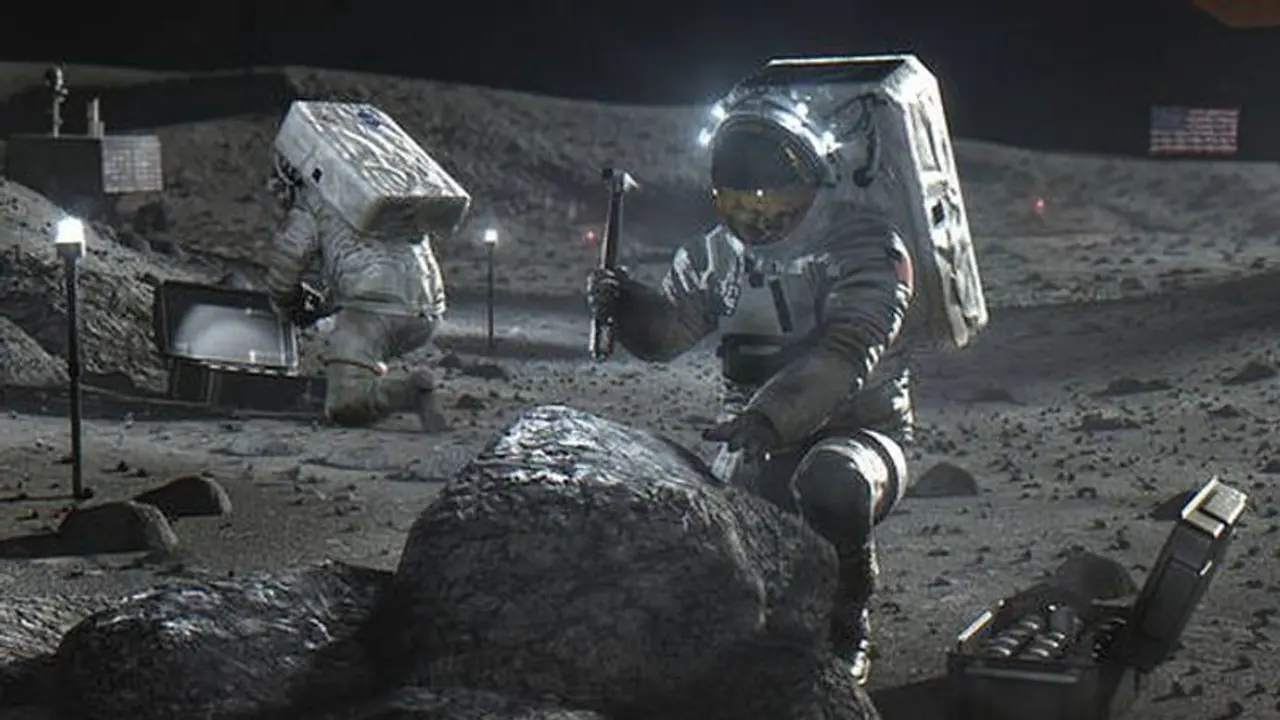India has its reasons to become a signatory to the Artemis Accords. Much of it stems from its current relationship with China. However, while India's 'friend' Russia finds the Artemis Accords too US-centric, China believes that the Accords are an attempt to prioritize commercial interests of the United States in the short term without thought to the potential dangers. Girish Linganna reports
By ratifying the Artemis Accords, India will gain access to data which will facilitate its forward progress in space exploration and the associated technological growth. According to estimates, the space economy is worth $469 billion at least. By signing the Artemis Accords, India would obtain beneficial information to exploit this market more than they do currently, increasing their access to expertise and enhancing proficiency. The inhabitants of India will reap substantial advantages from the Artemis plan. In India, a population of 700 million living in rural areas experience a deficiency in telecommunication services, healthcare, and educational infrastructure.

Explained: Why India joining Artemis Accords is MASSIVE
The Artemis Accords could be used to create an information database and offer support and services. High-resolution images collected from space can give village-specific, geo-referenced data that can be used to oversee natural resources, such as land use/land cover, terrain morphology, surface water and groundwater, soil features, environment, and infrastructure.
In order to capitalize on the potential advantages of the Artemis Accords, India needs to enter into an agreement to share information and collaborate with other countries - something that is not achievable with their current limited budget.
In the Artemis program, India is leveraging space technology to help safeguard the environment. The advancement of space technologies has created inventions that are beneficial for the environment. For instance, satellite-based technologies have decreased CO2 emissions from vehicles, while remote-sensing technology has improved wind turbine performance. Moreover, weather satellite data has enabled solar cells to generate more electricity.
In India, as in many other places, temperatures are increasing, often accompanied by droughts and floods. Therefore, resources that can help to combat climate change are essential, particularly those derived from space technology that has already displayed their effectiveness
The affirmative team will elaborate on why the advantages of advanced space technology can only be observed in a world in which India is a part of the Artemis Accords.
It is concluded that, due to India's current relationship with China, there is no other feasible option than the Artemis Accords. India does not possess the influence to establish global standards independently either. In conclusion, it is opined that the Republic of India should become a signatory of the Artemis Accords.
The Potential for Conflict over the Artemis Accords
Beijing perceives the Artemis Accords as a bid by the United States to gain control of space, and thus India's endorsement of this pact would only further aggravate the already highly strained relations between the two countries.
The Chinese government has expressed their belief that the Artemis Accords, proposed by NASA, are an attempt to prioritize commercial interests of the United States in the short term without thought to the potential dangers
The United States Institute of Peace declared Hundreds of Indian and Chinese soldiers clashed at the Line of Actual Control (LAC) on December 9. Between the two countries, this contested border spans just over two thousand miles.
It has been suggested that if India signs the Artemis Accords, hostilities could erupt in Asia, which would have a catastrophic impact not only on the region, but on the entire globe. This is due to the fact that China and India are significant economic powers with a growing global profile.
Russia's Concerns About Artemis Accords
Russia has been critical of the Artemis Accords, which were created by NASA in 2020. The accords are a set of principles for the civil exploration and use of outer space, and they require signatories to adhere to certain standards of behaviour, such as the public release of scientific data and the peaceful use of space.
Russia has argued that the Artemis Accords are too US-centric and that they do not give enough weight to the interests of other countries. The Russian space agency, Roscosmos, has also expressed concerns about the accords' provisions on the use of force in space.
In 2021, Russia announced that it would not sign the Artemis Accords. The Russian government has said that it is still open to cooperating with other countries on lunar exploration, but it wants to do so on its own terms.
Russia could respond to India's ratification of the Artemis Accords in a number of ways. It might:
* Issue a statement criticising India's decision.
* Reduce or suspend space project cooperation with India.
* Construct a coalition of nations that share your opposition to the Artemis Accords.
* Take legal action against India based on the argument that the accords violate international law.
India achieving 'big big milestones' in roadmap to be semiconductor nation: MoS
